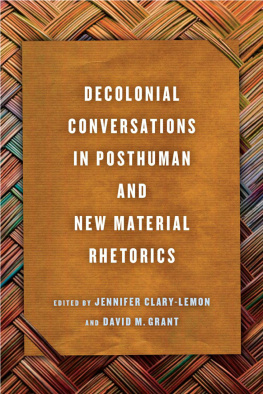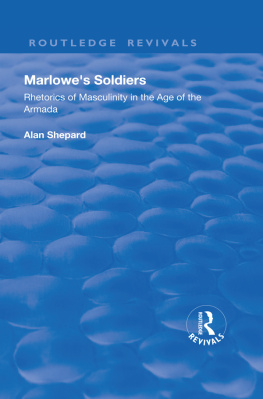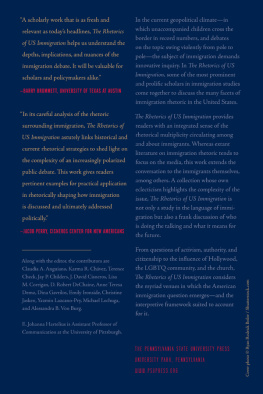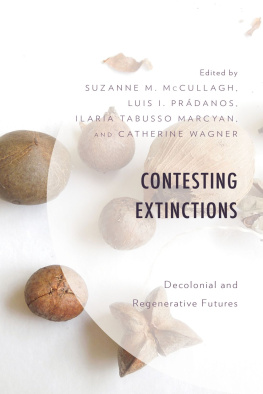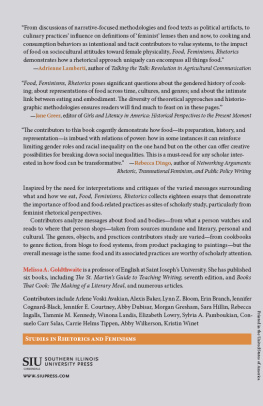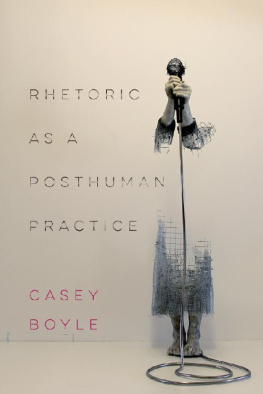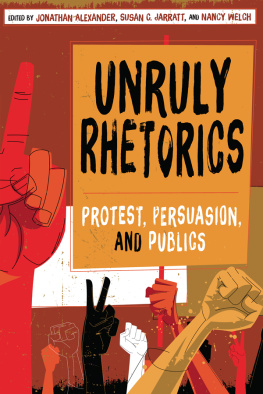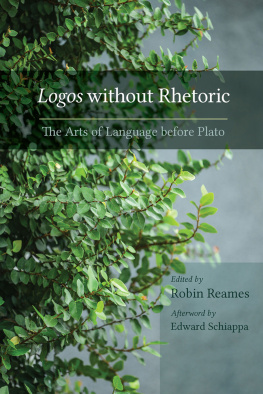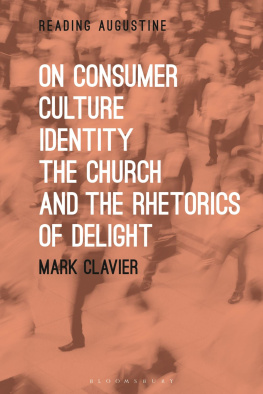Landmarks
DECOLONIAL CONVERSATIONS IN POSTHUMAN
AND NEW MATERIAL RHETORICS
NEW DIRECTIONS IN RHETORIC AND MATERIALITY
Wendy S. Hesford, Christa Teston, and Shui-Yin Sharon Yam, Series Editors
DECOLONIAL CONVERSATIONS
IN POSTHUMAN AND
NEW MATERIAL RHETORICS
Edited by Jennifer Clary-Lemon
and David M. Grant

THE OHIO STATE UNIVERSITY PRESS
COLUMBUS
Copyright 2022 by The Ohio State University.
All rights reserved.
Library of Congress Cataloging-in-Publication Data
Names: Clary-Lemon, Jennifer, editor. | Grant, David M., 1969 editor.
Title: Decolonial conversations in posthuman and new material rhetorics / edited by Jennifer Clary-Lemon and David M. Grant.
Other titles: New directions in rhetoric and materiality.
Description: Columbus : The Ohio State University Press, [2022] | Series: New directions in rhetoric and materiality | Includes bibliographical references and index. | Summary: Brings together new materialist and decolonial rhetorics to respond to frustrations of erasure, otherness, and marginalization in the fields of rhetoric, writing, and communicationProvided by publisher.
Identifiers: LCCN 2022018753 | ISBN 9780814214923 (cloth) | ISBN 0814214924 (cloth) | ISBN 9780814282335 (ebook) | ISBN 0814282334 (ebook)
Subjects: LCSH: RhetoricSocial aspects. | Decolonization. | Indigenous peoples. | Posthumanism. | Materialism.
Classification: LCC P301.5.S63 D43 2022 | DDC 808dc23/eng/20220615
LC record available at https://lccn.loc.gov/2022018753
Other identifiers: ISBN 9780814258446 (paper) | ISBN 0814258441 (paper)
Cover design by Susan Zucker
Text composition by Stuart Rodriguez
Type set in Minion Pro
Contents
We acknowledge here that it takes more than the usual village to coedit a book during a pandemic. We appreciate the patience and dedication of those who have devoted their time and energy into making this volume as strong as it could be. First and foremost, we thank every contributing author who appears here for putting their trust in this collaboration, working not only with incommensurable subjects, but also working during a time of great duress. We also thank the anonymous reviewers and editorial team at The Ohio State University Press, who were a vital part of seeing this manuscript through to being its best possible self.
We thank the locations and traditional lands upon which each piece in this collaborative project was written, which fall across North America and are distributed with every writer who has written a chapter for inclusion, from the American desert southwest to the Great Lakes to those writing from each ocean coast. This volume could not have been written without the support of the University of Waterloo and the territory on which it sits, land borrowed from the Neutral, Anishinaabe, and Haudenosaunee people. The support of the land of Ioway, Dakota, and Meskwaki people, on which the University of Northern Iowa sits, is also honored and thanked. We thank the faculty and students of the Department of Writing, Rhetoric, and American Cultures at Michigan State University as well as those members of the scholarly community who have shared with us their thoughts and ideas, without whom we would not have gotten to know one another, nor would we have been challenged in ways that have led to this book. We see this volume as a gift, to both have been able to write, to be able to listen to, and to be able to share.
Lastly, wed like to take a small space for personal acknowledgments. David would like to thank Jen as coeditor and collaborator. Without her continual leadership, knowledge, and dedication, David would have been lost in making some tough decisions on how to braid these diverse strands together. Davids thinking comes, too, from two special Rhetoric Society of America workshops, one led by Ellen Cushman and another co-led by Diane Davis and Thomas Rickert. These scholars and the amazing workshop participants are all influential in their own way. The College of Humanities, Arts, and Sciences at the University of Northern Iowa helped fund part of this project. Lastly, this collection would not have been possible without the patience of Davids wife, Rhianon, his children, many crazy animal companions, and all the untamed places from which we gather so much.
Jen would like to thank David, as coeditor and collaborator, for his near-boundless energy for this project. In so many moments it seemed like seeing this project through to print might be impossible, and it should be known that in every case, David was the person to relight the fire, to allow breathing room, and to take on what seemed like impossible tasks. She thanks the University of Waterloo SSHRC Institutional Grant for indexing support of this manuscript. For other supports, large and small, Jen thanks those in her pandemic bubble that kept her safe and sane: her daughter, her mother, her partner, and her little dog.
Writing this foreword from Wampanoag territory in 2020 has been nothing short of ironic. The year was to be the one that celebrated the 1620 landing of the Pilgrims and all the mythology that accompanies that act of settler colonialism, but a pandemic has swept in and cleared the area of the expected tourism and events that were planned. Meanwhile, the Mashpee Wampanoag had still been fighting for their sovereignty as the land in trust (321 acres); in June 2020 a federal judge had remanded to the secretary of the interior to reevaluate the evidence and make a new decision on rescinding the land in trust. Absurdly, the history of Americas beginningswhich includes Wampanoag peopleattempts to still divorce them from land in contemporary times. As Robert Lestn points out in this collection, Decoloniality is the struggle (22). With all this in mind, Decolonial Conversations in Posthuman and New Material Rhetorics arrives and situates itself in this time and place, giving us a means to further challenge the status quo as we build toward a more just future.
As a Native woman and scholar, I live by and act through Indigenous principles of respect, relationality, responsibility, and reciprocity. The time of COVID and our witnessing climate change phenomena has us recognizing how our devastation of the Earth has given cause for her striking back at humans. Likewise, these turbulent and divisive times have brought renewed attention to the deep-seated inequalities that exist in the world, our country, and our own spacesacademic and otherwise. These ideologies stem from settler colonialism and its aftermath. It is long past time to hear the stories and, as Christina Cedillo argues in this volume, to hold up Tezcatlipocas smoking mirror to see all, including ourselves, so we can critically examine how we have been complicit in perpetuating these inequalities. It is time to re-right the world through embracing Indigenous knowledge, not to just extract from, but to critically imagine ourselves and our institutions enacting the kind of systemic changes that Indigenous scholars and knowledges urge. It is time to move forward with decolonial practices that are grounded in relationality, beginning with our relationships with land. It is time to reframe our practices and de-link (Mignolo) from the colonial-imbedded mindset that is rooted in our disciplines. When we think about relationships and reciprocity as practices, we are beginning to think otherwise. Posthumanist moves to decenter humans provide space for all our relations to be heard, understood, centered, and therefore a site for learning how to delink and work for decolonial changes.

